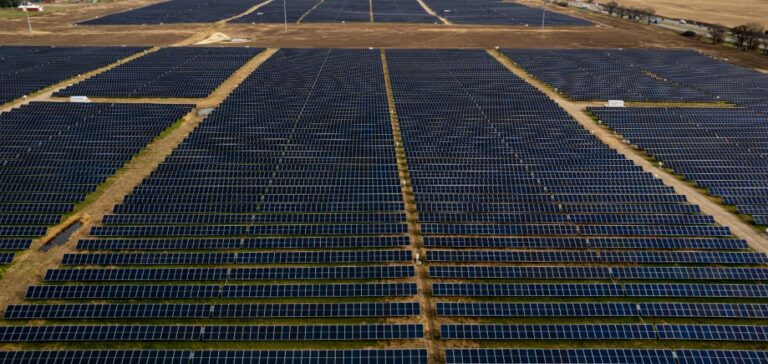India continues to accelerate its development in the renewable energy sector with a new milestone: its installed solar capacity reached 100.33 gigawatts (GW) at the end of January 2025. This figure represents a significant increase from the 2.82 GW recorded in 2014, according to the Ministry of New and Renewable Energy.
Growth Driven by Ongoing Projects
The rapid increase in solar capacity is largely attributed to ongoing projects and active tenders. Currently, 84.10 GW are under implementation, while an additional 47.49 GW are in the tendering process. Furthermore, India is expanding its hybrid and round-the-clock (RTC) renewable energy projects, with 64.67 GW under implementation or awarded, bringing the total of solar and hybrid projects to 296.59 GW.
An Increasing Share in the Energy Mix
Solar energy plays a central role in the country’s energy transition, accounting for 47% of the total installed clean energy capacity. In 2024, India added 18.5 GW of new utility-scale solar installations, a 2.8-fold increase compared to the previous year. In 2023, a record-breaking 24.5 GW of solar capacity had already been added, demonstrating strong momentum in the sector.
States Leading the Growth
Several states are significantly contributing to this rapid expansion of solar energy. Rajasthan, Gujarat, Tamil Nadu, Maharashtra, and Madhya Pradesh are among the key drivers of this growth. Their strategic role is due to favorable climatic conditions and local initiatives supporting investments in solar infrastructure.
2030 Target: Moving Toward 500 GW of Non-Fossil Energy
India has set an ambitious goal of reaching 500 GW of non-fossil energy capacity by 2030. The development of solar infrastructure, alongside other renewable energies, is a crucial component in achieving this target. With increasing tenders and a rapidly growing capacity, the country is positioning itself as a key player in the global energy market.






















